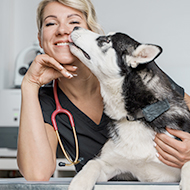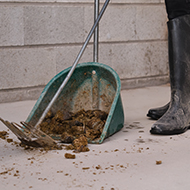Thoroughbred racehorses may lack vitamin D, study finds
Some stabled racehorses could need supplements.
A study has found that some stabled, thoroughbred horses may be more likely to have lower levels of vitamin D, due to their lifestyles.
It suggests that horses that don’t graze may have lower vitamin D levels, meaning they require supplements to maintain adequate levels.
The research, conducted by the Royal (Dick) School of Veterinary Studies and The Hong Kong Jockey Club Equine Welfare Research Foundation, studied levels of vitamins D2 and D3 in thoroughbred racehorses in Hong Kong and UK.
The results revealed that the horses in Hong Kong, which did not have access to grazing, had lower levels of vitamin D than the UK horses.
Horses are unable to produce vitamin D through exposure to sunlight, and therefore need to source it through grazing. Vitamin D2, which occurs naturally in grazing horses, is considered particularly important for horse health and athletic performance.
However, researchers also discovered that raised levels of either vitamin D2 or D3 could result in a drop of levels of the other type.
The findings confirmed previous research that horses have a lower level of vitamin D than other species, and also raised questions on how vitamin D can be supplemented in deficient horses.
The researchers suggest that non-grazing horses, such as those in Hong Kong, should receive vitamin D supplements with their diets. However, they say that further research is needed to decide on optimal dose and form of supplementation.
As vitamin D2 was observed to be more beneficial to horses, levels of vitamin D2 and D3 will need to be balanced to ensure one does not outweigh the other.
The researchers suggest that future studies could also explore thresholds for vitamin D deficiencies, and how the use of supplements may benefit racehorse health and athletic performance.
Professor Bruce McGorum, personal chair of equine medicine at Royal (Dick) School of Veterinary Studies, said: “These findings add to our understanding of vitamin D biology in equine athletes, and in horses overall.
“Further research could add to this by helping define the optimum levels for equine health and performance.”
The full study can be found in the journal Animals.
Image © Shutterstock






 Birmingham Dogs Home has issued an urgent winter appeal as it faces more challenges over the Christmas period.
Birmingham Dogs Home has issued an urgent winter appeal as it faces more challenges over the Christmas period.
